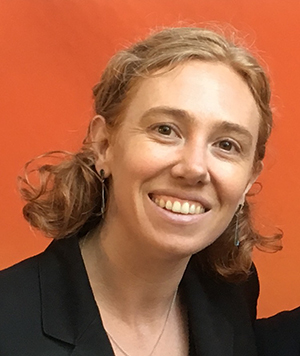LETTERS FROM BERLIN
★ ★ ★ ★
FUTURE GOALS

By Annie Mark-Westfall
On my 30th birthday, a colleague/mentor told me, “Thirty is the height of your powers!” Given my goal-oriented nature, I was both ecstatic and terrified to hear this. I fretted for several months, both trying to figure out what she meant and also about what to do with those “powers.” Since then, I have had two children, moved to Europe, redirected and advanced my career, and gained that sense of “self” that many women tell me is what your 30s is all about. Today I stand at the precipice of my mid-thirties, asking myself… Now what? Thirty-four suddenly feels like the apex of my life. Is this the point where I become a statistic on the inequalities of men and women in the workplace, and in leadership positions?
My mother likes to tell a story about when I was a little girl. I was playing with my dolls, and she asked if I wanted to help her bake cookies. I responded, “I can’t, I’ve got to get these kids to the pool.” Mom asked if my boss would give me the time off, and I rolled my eyes. “Mom, I am the boss.”
Career goals have always come easy for me. Throughout college and my early twenties, I kept a journal, and the running theme was my desire to work for a non-profit organization. To “travel the world and help people,” as cheesy as that sounds. After a brief interlude teaching English in South Korea and Ecuador, I took my first “real” job with a non-profit organization based in New York. The organization has a cause and an approach that I believe are fundamental to life on our planet. As such, I have stayed with them for 10 years and counting.
In addition to my passionate belief in our mission, another reason that I have stayed is the very clear career path. I have worked diligently to climb the ladder, earning sequential promotions every few years. This time, the next step could mean a larger portfolio with, potentially, significantly more travel. I crave that role with the ferocity of the idealistic 18-year-old who still lives inside me, and wants to change the world; and I look at my babies’ faces and remember that I am their world.
I have always been certain that I would have a husband and a family; and I have always wanted an international career. It has been apparent to me for a long time, however, that these goals are perhaps incompatible. In college, I wrote an essay for a Classics course, about how I feared Achilles’ choice of a long life without glory or a short life of glory would also ring true for me, as a woman. I could either have an exciting, international career, or a family. My (female, German-born) professor assured me the choice was not so dire.
These days, via WhatsApp, I communicate daily with a group of successful, international, mid-career women with children. We grapple constantly with how to respond to the growing demands from our children, families, and careers. With each great new project comes more travel opportunity/obligation. Each new milestone in our children’s lives brings more guilt about missing too many evening baths or bedtime stories with these incredible little beings. And of course, we have our marriages to maintain. As we share our concerns and desperately ask each other how to strike the right balance, the common refrain is, “I am so grateful for you ladies…but where are our role models?!”
My own mother is certainly a role model in many ways. Her career did not include the level of travel that mine does, but she did choose a husband who shared at least 50% of domestic responsibilities; and therefore so did I. Reading articles from my contemporaries, this seems to be a critical and still all-too-rare step. But if I look around, I see the Yahoo CEO who came back to work two weeks post-partum. No thanks. Here in Germany, Angela Merkel has no children.
Who are our role models? What does work-life balance look like for a career woman with small children?
In moving to Germany, a country with a fundamentally different paradigm for working parents than the United States, I have begun to answer part of these questions. Granted, Germany has the term Rabenmutter (“raven mother”—a bad mother, due to being a working mother), indicating its own cultural challenges. Nevertheless, as an American, I have wondrous gratitude for the federal policies that enable us to stay home and care for our daughter for the first year of her life. Then she will begin free, full-time daycare (the monthly lunch fee is €23, or $27 USD). This is practically inconceivable for my American counterparts, many of whom spend nearly their entire salaries on childcare.
As I ponder these facts, I regain confidence in my ability to take on this next phase of life. I am part of the millennial generation, who were told that we could be whatever we wanted. I remember mulling that over, wondering why, then, wasn’t everyone a CEO or high-powered executive, jetting all over the world.
I hope that my daughter and her generation will have plenty of female role models with big careers and families; that there is never a question whether the two are compatible. And that is the mission for this next phase in my life.

Annie Mark-Westfall graduated from Kenyon College in Ohio. As a former Fulbright grantee and Robert Bosch Foundation fellow, she views herself as a cultural ambassador. Her day job is with an international conservation organization.

DEAR READER
At The Wild Word we are proud to present some of the best online writing around, as well as being a platform for new and emerging writers and artists.
If you have read the work in The Wild Word and like what we do, please put something in our tip jar.
THANK YOU FOR YOUR SUPPORT!
























Things will change, if people, like you, pioneers like you, use their voice and their power to make people listen. And it will be a better world for everybody!